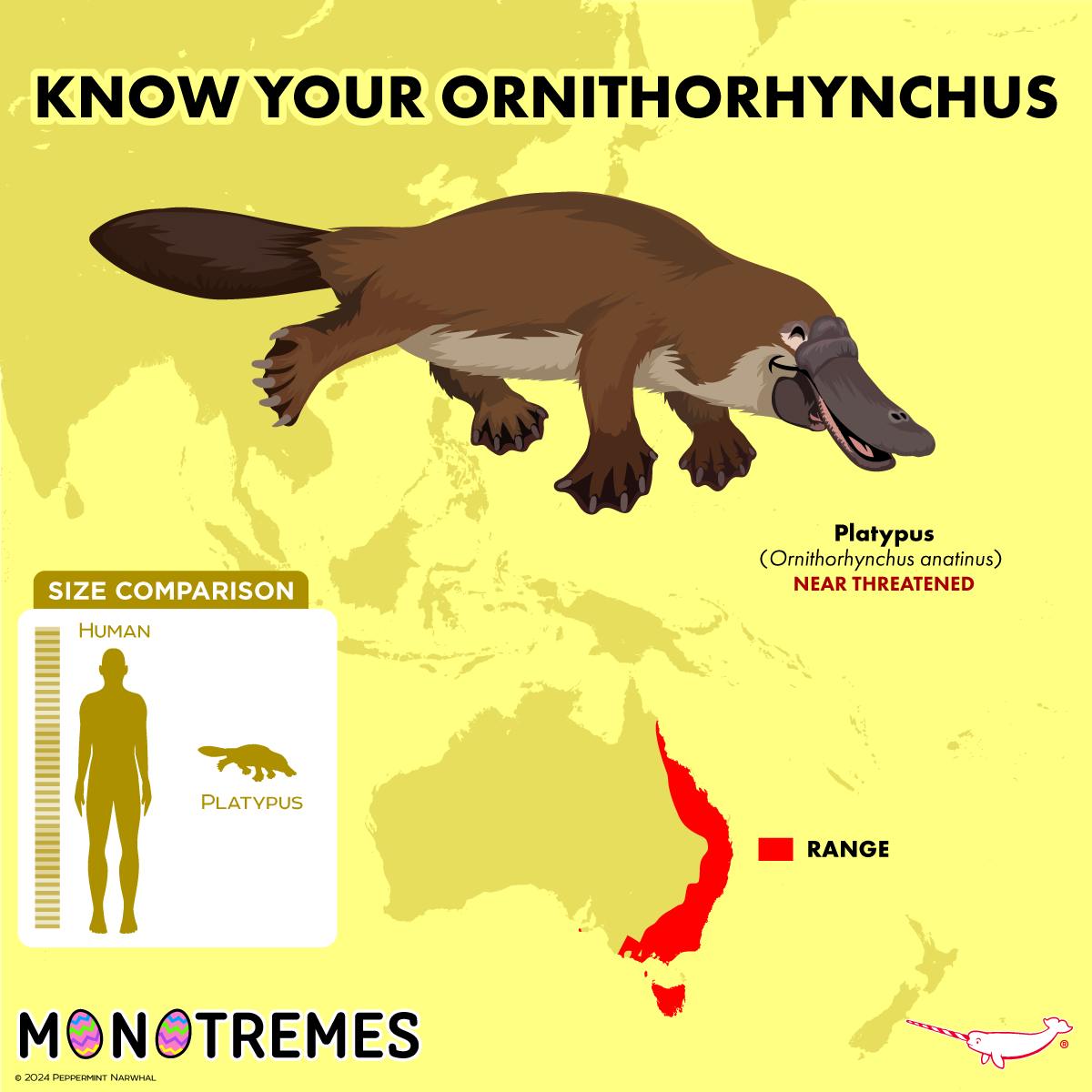– The distinctive biology and behavior of the Platypus (Ornithorhynchus anatinus) as a representative of monotremes.
– The critical role Monotremes play in ecosystem dynamics and biodiversity.
– Considerations in conservation strategies for protecting Monotremes, emphasizing habitat preservation.
– The significance of scientific research and public education in promoting Monotremes conservation.
– Opportunities for community engagement and support through initiatives like Kickstarter projects.
The Platypus, scientifically named Ornithorhynchus anatinus, is a remarkable creature that has fascinated scientists and animal lovers for centuries. As the only existing member of its genus, it is a prime example of a monotreme, an order of egg-laying mammals that includes only one other family comprising echidnas. Its preference for an aquatic lifestyle sets the Platypus apart, even within this small group, leading to unique adaptations and behaviors.
One of the most striking features of the platypuses is its duck-like bill. This evolutionary marvel is a highly effective tool for locating prey in the aquatic environment where it thrives. This bill is equipped with approximately 40,000 electroreceptor cells, which allow it to detect the electrical signals produced by prey movements, such as worms, insect larvae, and small fish buried in the riverbed. This sensory adaptation enables it to navigate and hunt in murky waters with limited visibility.
The PlatyPlatypusurther adapted to its aquatic habitat through the presence of dense fur, which provides insulation and a waterproof outer layer that aids in swimming and diving. Another surprising aspect of Platypus biology is the presence of a venomous spur on the males’ hind legs, a unique trait among mammals yet to be fully understood in terms of its evolutionary purpose or mechanism of action.
Monotremes like the Platypus play crucial roles in their ecosystems, contributing to the balance and health of freshwater habitats. They are apex predators in their domain, controlling populations of aquatic invertebrates and contributing to the nutrient cycle within these environments. Therefore, their conservation is critical not only for the species itself but also for the overall health of their habitats.
However, the conservation of Monotremes faces challenges mainly due to habitat destruction and degradation, water pollution, and climate change impacts. Safeguarding their environments through the preservation and restoration of freshwater ecosystems is paramount. Such efforts include regulating water use, controlling pollution, and protecting areas crucial for their feeding, breeding, and nesting.
Scientific research is pivotal in understanding Monotremes, providing insights into their ecology, physiology, and genetics. This research is vital for informing conservation strategies and policies. In addition, public education and awareness campaigns can foster appreciation and support for these unique mammals, encouraging conservation actions at individual and community levels.
Kickstarter projects, like the one focusing on Monotremes, offer an innovative way to engage the public and raise funds for conservation efforts. These initiatives create opportunities for people to contribute to protecting these remarkable creatures, connecting interested individuals with researchers, conservationists, and educators. Through campaign participation, individuals can learn about Monotremes’ importance, threats, and the measures needed to secure their future.
The opportunity for community engagement in Monotreme conservation through Kickstarter projects and other initiatives is a testament to the power of collective action. By supporting these efforts, the public can play an essential role in ensuring the survival of these unique and fascinating animals for future generations to marvel at and learn from. Engaging with these campaigns contributes to a noble cause and enriches our understanding of the natural world and our place within it.
In promoting the conservation of Monotremes, we foster a greater appreciation for biodiversity and the intricate connections that sustain life on Earth. Through research, education, and community engagement, we can work together to protect these extraordinary mammals and the ecosystems they inhabit, ensuring a richer, more diverse planet for all.
*****
Source Description
Since we are celebrating Monotremes to tie into our NEW Monotremes Kickstarter, we thought it was time for you to Know Your Ornithorhyncus!
The Ornithorhyncus is monotypic and contains only the Platypus (Ornithorhynchus anatinus). The Platypusis is the only monotreme that prefers an aquatic life to the more terrestrial. The Platypus’s Platypus-like bill works like a metal detector, but instead of alerting to metal, it detects the electrical signature of living things. About 40,000 specialized electroreceptor cells are arranged in strips on the top and underside of their bill. It uses this specially evolved bill to find prey hiding in the murky sediment of the freshwater rivers and streams where it lives. Any unlucky worms, insect larvae, crustaceans, or small fish are quickly swallowed, becoming a tasty meal for the Platypus. TPlatypuss of fur – insulation and waterproofing- are additional adaptations for aquatic life. The fascinating facts about this species could fill a book, but here are a couple more worth noting. 1.) Males of the species have a hollow spur on their high legs that secretes venom. 2.) the Platypus gives off a fluorescent green-blue glowPlatypusV light for some unknown reason. Now You Know Your Ornithorhyncus!
Do you love the Short-Beaked Echidna?
Then check out our…
KICKSTARTER MAKE 100 – MONOTREMES
NEW collectible enamel pin series featuring the world’s only egg-laying mammals, the monotremes, including the platypus and the echidna. Platypuse Now! – https://rb.gy/0lw7he
Search “Monotremes” or “Peppermint Narwhal” on Kickstarter.
The campaign runs now through Feb. 4, 2024.
Shop www.peppermintnarwhal.com.
Last Chance – 2024 Calendar will sell out soon!!!

